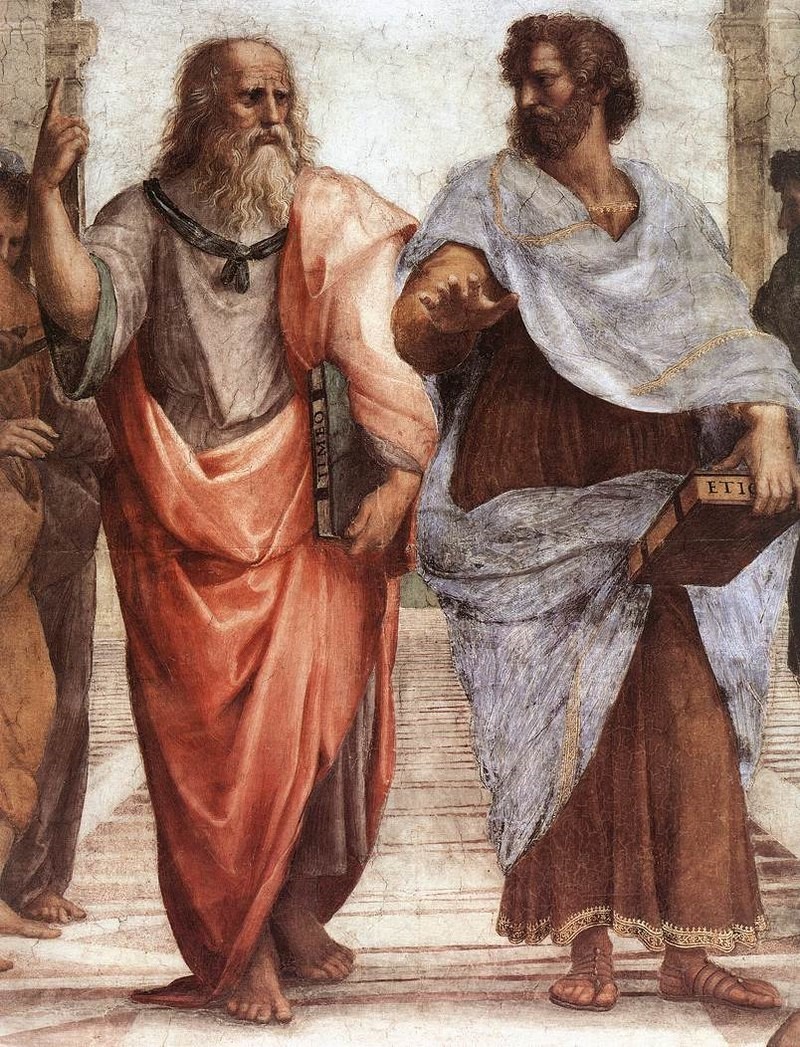Specifically, what makes a question or an answer philosophical?
Thank you, Jom Olazo, for an excellent question!
The answer depends on what you think philosophy is. I can only give you my take; others will defend a (very) different idea of philosophy – as far as I know, there is no unchallenged notion of “philosophy”. Put briefly, philosophy is what I did just now: reflecting. I did not give you an answer straight away, but rather reflected on the question itself. “Reflectere” is Latin and literally means “bending back”. In reflection we turn our attention back towards what is usually hidden or out of sight or taken as read. What this object of reflection is exactly (concepts, presuppositions, ideologies, ways of appearing, etc.), depends on your philosophical approach and interests, but I’ll give you a few examples.
Consider the beginning of Plato’s “Meno”. Meno comes up to Socrates and asks, “Can virtue be taught?” Now, a straightforward answer – as opposed to a reflective reaction – would go “yes, because…” or “no, since…” or something like that. Socrates, however, asks Meno what he supposes “virtue” means. While it might appear annoying to answer a question with a question, it is also crucial. Because before we have established exactly what we are talking about, any discourse about specifics is pretty much useless, as we might be talking about very different things or even about nothing at all (“virtue” might be a meaningless expression). Reflecting on what we mean ensures us that we are at least talking about the same topic.
Now consider how we treat problems. Usually, we are told to focus on solutions. But if we do that, we have already accepted how the problem is posed, we have accepted its parameters and we have accepted that it is a problem at all. This is the straightforward approach. But we can also reflect on the conditions that make it a problem and question whether the presentation of the problem is valid and justified in the first place. If it is not, we can simply dissolve (reject) it, rather than trying to solve (accept) it. The same goes for assumptions in a debate: we can always question whether there are good reasons to accept a basic premise or a given question, instead of simply running with it. Reflecting on the validity of assumptions and the rationality of questions can spare us a lot of work and pointless arguments. And since we can reflect on presuppositions whenever anything is said about anything, there is a philosophy of almost every field of human activity.
During these reflections we might discover more generally that in any activity, given things (concepts and questions, assumptions, also literally things, like, stuff) are always given to someone with a certain perspective, a history, in a certain context. As it turns out, there is no view from nowhere, no view from side-ways on. Any inquiry or stance that keeps these issues of conditions, presuppositions, and perspective in mind is philosophical – at least in my book.
What do you think? What makes something philosophical in your book? Let us know in the comments.
And, as always, if you have a question for the Armchair Philosophers, don’t hesitate to get in touch. You could send us a message or fill in this form.
Be sure to check out our podcast!
If you like what we do, you can support us by buying us a coffee!
Image: An elder Plato walks alongside a younger Aristotle, from Raphael’s The School of Athens (1509-1511)
I received my PhD in philosophy in 2017; my dissertation was called “Plato's Bastard” (published as “Phenomenology as Platonism” [Phänomenologie als Platonismus]). My areas of interest are phenomenology, metaphysics and their overlap; but I dabble in whatever field I feel like – and with whoever's up for it. Philosophy to me means questioning our presuppositions, which fascinates me because it is something we can do whenever anyone says anything about anything and it never gets boring or old; it's also something that's painfully absent from public discourse, but easily learned. Enter: public philosophy!

